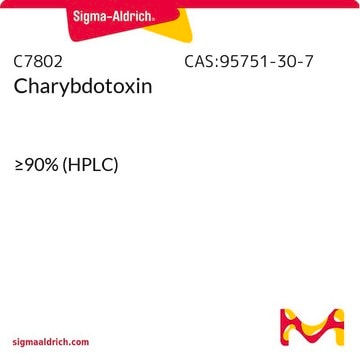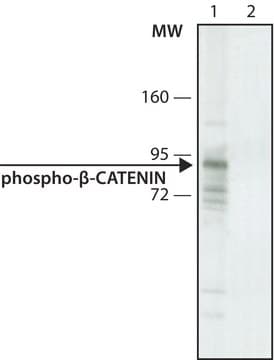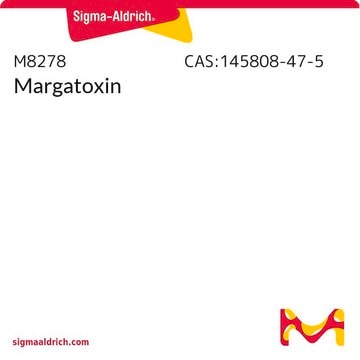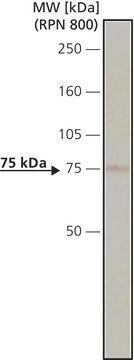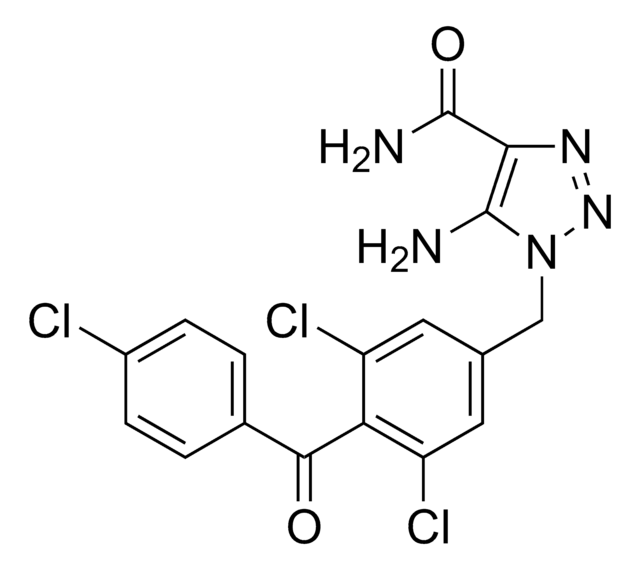C6419
Liquid chromatography columns
Open-ended, bed volume 53 mL, I.D. × L 1.5 cm × 30 cm
Iniciar sesiónpara Ver la Fijación de precios por contrato y de la organización
About This Item
UNSPSC Code:
12000000
eCl@ss:
32060201
NACRES:
SB.52
Productos recomendados
grade
for chromatography
technique(s)
LPLC: suitable
I.D. × L
1.5 cm × 30 cm
bed volume
53 mL
¿Está buscando productos similares? Visita Guía de comparación de productos
General description
All of the columns listed below are constructed of borosilicate glass and are rated at a maximum pressure of 15psi (1 bar). Five configurations are available:
A - Luer-Lock, Non Jacketed: Fixed polypropylene end caps, polyethylene bed supports, Luer-Lock inlet and outlet fittings.
B - Luer-Lock, Jacketed: Same as A (above), with a borosilicate glass jacket surrounding the column body for temperature control.
C - Open-ended: Fixed polypropylene ends (outside of tube only), without jacket or end fittings. Requires 2 flow adapters.
D - PTFE, non-jacketed: Threaded ends, removable PTFE fittings with shielded O-ring seals, 20 μm polyethylene bed supports, and 1/4-28 threaded tubing connections. Solvents contact only PTFE and borosilicate glass.
E - PTFE, jacketed: Same as D (above), with an acrylic jacket surrounding the column body for temperature control.
A - Luer-Lock, Non Jacketed: Fixed polypropylene end caps, polyethylene bed supports, Luer-Lock inlet and outlet fittings.
B - Luer-Lock, Jacketed: Same as A (above), with a borosilicate glass jacket surrounding the column body for temperature control.
C - Open-ended: Fixed polypropylene ends (outside of tube only), without jacket or end fittings. Requires 2 flow adapters.
D - PTFE, non-jacketed: Threaded ends, removable PTFE fittings with shielded O-ring seals, 20 μm polyethylene bed supports, and 1/4-28 threaded tubing connections. Solvents contact only PTFE and borosilicate glass.
E - PTFE, jacketed: Same as D (above), with an acrylic jacket surrounding the column body for temperature control.
Certificados de análisis (COA)
Busque Certificados de análisis (COA) introduciendo el número de lote del producto. Los números de lote se encuentran en la etiqueta del producto después de las palabras «Lot» o «Batch»
¿Ya tiene este producto?
Encuentre la documentación para los productos que ha comprado recientemente en la Biblioteca de documentos.
Nuestro equipo de científicos tiene experiencia en todas las áreas de investigación: Ciencias de la vida, Ciencia de los materiales, Síntesis química, Cromatografía, Analítica y muchas otras.
Póngase en contacto con el Servicio técnico



